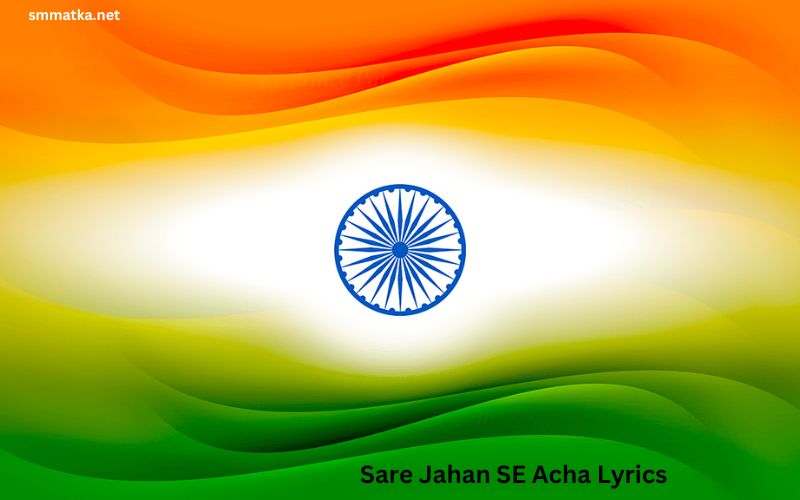Certainly! “Sare Jahan Se Achha” is a renowned patriotic poem penned by Muhammad Iqbal in the early 20th century. Its verses have inspired generations and are particularly significant in the context of Indian nationalism. Here’s a detailed exploration of its lyrics and their impact:
Introduction to “Sare Jahan Se Achha”
“Sare Jahan Se Achha” translates to “Better than the entire world” in English. It was written by Allama Muhammad Iqbal, a prominent philosopher, poet, and politician in British India. This poem has transcended its literary origins to become an anthem of patriotism and unity for many in the Indian subcontinent.
Historical Context and Origin
Muhammad Iqbal wrote “Sare Jahan Se Achha” in 1904 during his stay in England for higher studies. Originally titled “Tarana-e-Hindi,” meaning “Anthem of the Indians,” the poem was a response to the prevailing political and social climate of that era. It reflected Iqbal’s vision of a unified India and his aspirations for the upliftment of its people.
Literary Analysis of the Lyrics
Stanza-by-Stanza Examination
- First Stanza: “Sare Jahan Se Achha Hindustan Hamara”
- This opening line establishes a strong sense of pride and ownership. It declares India (Hindustan) as superior to all other lands.
- Second Stanza: “Hum Bulbulen Hain Is Ki, Yeh Gulsitan Hamara”
- Here, Iqbal compares the people of India to nightingales (Bulbulen), singing praises of their homeland (Gulsitan).
- Third Stanza: “Maz’hab Nahin Sikhata Aapas Mein Bair Rakhna”
- This stanza emphasizes the idea of religious harmony and unity, stating that religion does not teach enmity among people.
- Fourth Stanza: “Hindi Hain Hum, Watan Hai Hindustan Hamara”
- Reaffirming the national identity, this line stresses that Indians are inherently linked to their homeland.
- Fifth Stanza: “Parbat Woh Sab Se Uncha, Hamsaya Aasman Ka”
- Describing the Himalayas as the highest mountains, this stanza symbolizes the lofty aspirations and strength of India.
- Sixth Stanza: “Ghurbat Men Hon Agar Hum, Rahta Hai Dil Watan Mein”
- Even if Indians find themselves in distant lands (ghurbat), their hearts remain tied to their homeland.
- Seventh Stanza: “Samjho Ishaare Ye Baharein, Shad Raheen Ashiyaan”
- The poem concludes with an optimistic note, urging everyone to interpret the signs of spring as symbols of joy and prosperity in their homes.
Themes Explored
Patriotism and Nationalism
- “Sare Jahan Se Achha” celebrates the love and loyalty towards one’s country, promoting a deep sense of patriotism.
Unity and Diversity
- The poem advocates for religious and cultural unity among Indians, emphasizing harmony despite diversity.
National Identity
- It establishes a strong sense of Indian identity and pride, asserting the nation’s greatness.
Impact and Legacy
“Sare Jahan Se Achha” has left an indelible mark on Indian culture and history. It has been sung and recited in various forms, from school assemblies to political rallies, embodying the spirit of unity and resilience. The poem continues to inspire generations, reminding them of the ideals of freedom, unity, and progress.
Conclusion
In conclusion, “Sare Jahan Se Achha” by Allama Muhammad Iqbal stands as a testament to the enduring spirit of patriotism and unity. Its lyrical beauty and profound themes have resonated with people across generations, making it not just a poem but a cherished anthem of national pride. As India progresses through its journey, these words continue to echo, reminding everyone of the values that bind them together as a nation.

